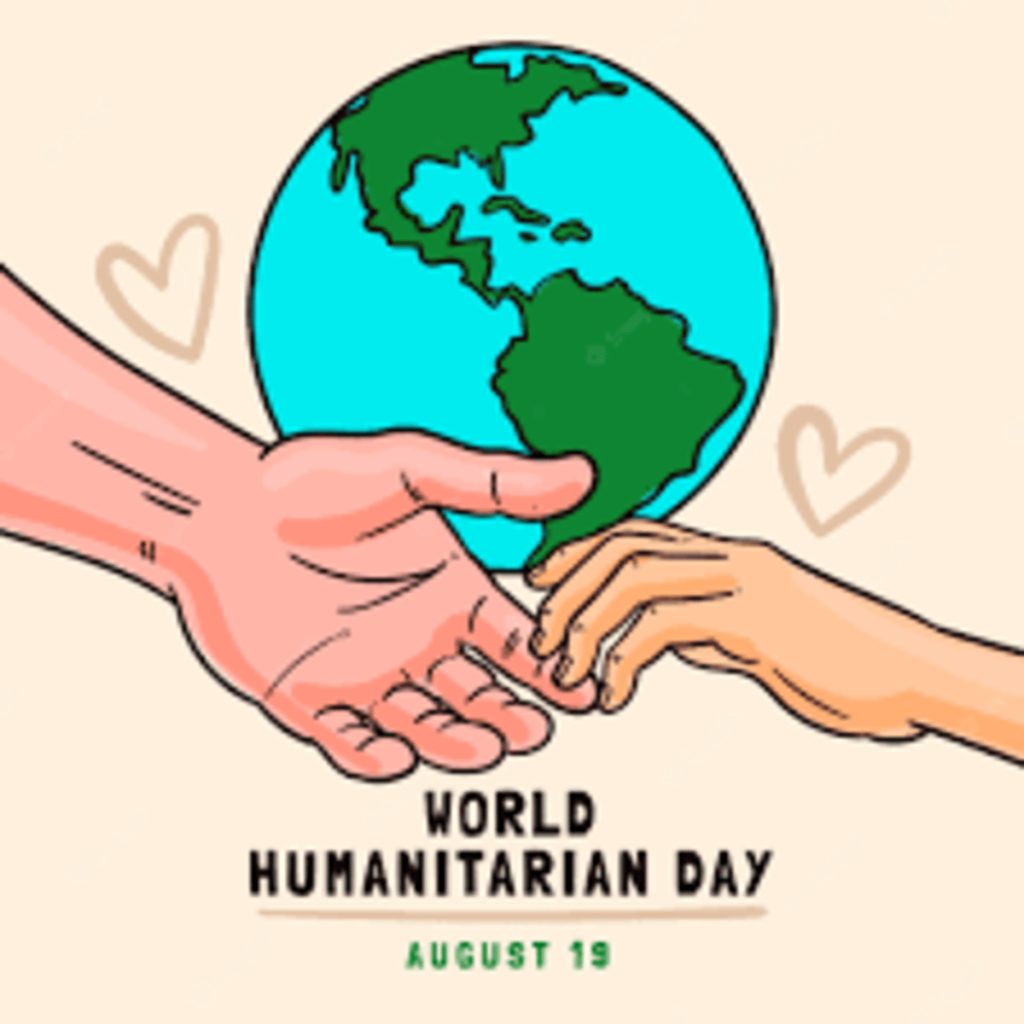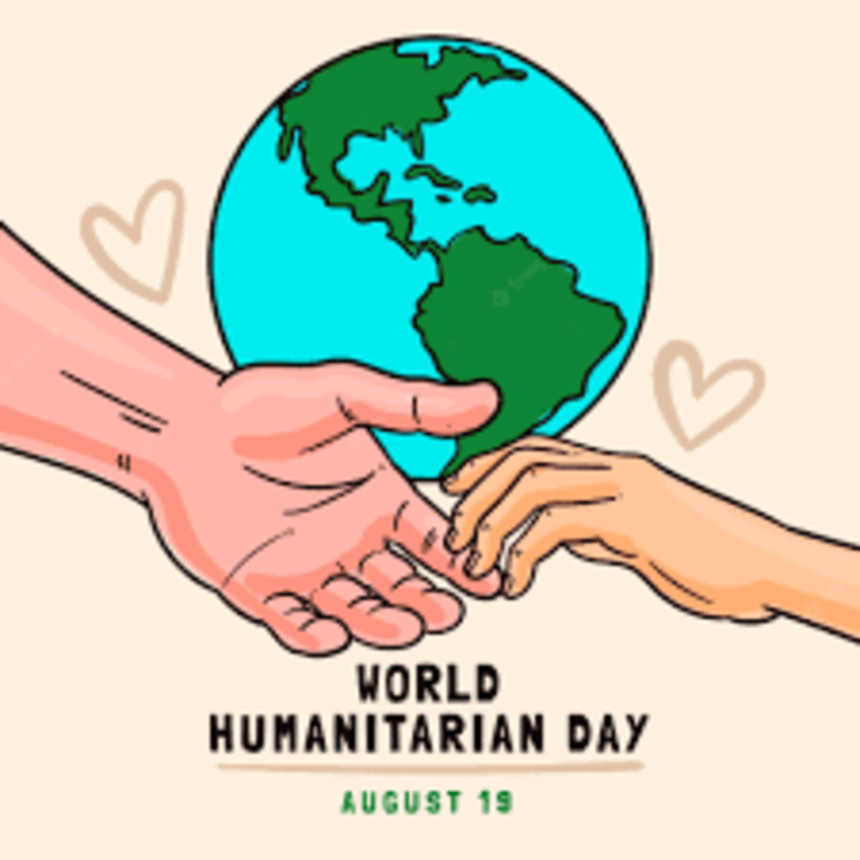World Humanitarian Day, observed on August 19th each year, serves as a solemn reminder of the tireless efforts and sacrifices made by humanitarian workers around the globe. This day commemorates those who put their lives on the line to help people in need, often in the most challenging and dangerous situations.

History:
World Humanitarian Day was established by the United Nations General Assembly in 2008 to coincide with the anniversary of the 2003 bombing of the United Nations headquarters in Baghdad, Iraq. The attack claimed the lives of 22 individuals, including the UN’s top representative in Iraq, Sergio Vieira de Mello. The day was created to honour not only those who lost their lives in this tragic incident but also to recognize all humanitarian personnel who risk their lives to provide assistance and relief to those in crisis.
Theme and Significance:
Each year, World Humanitarian Day adopts a specific theme that sheds light on various aspects of humanitarian work. The themes often centre around the challenges faced by humanitarian workers and the people they serve. These themes serve as a call to action for governments, organisations, and individuals to address the pressing issues affecting vulnerable populations worldwide.
The significance of World Humanitarian Day lies in its ability to raise awareness about the importance of humanitarian efforts and to advocate for the safety and protection of those who provide aid. It provides an opportunity for the world to come together to acknowledge the bravery and compassion of those who dedicate their lives to helping others, regardless of the risks involved.
Impactful Stories:
Numerous inspiring stories emerge from the field of humanitarian work, showcasing the remarkable dedication of individuals who go above and beyond to make a positive impact. From healthcare workers battling pandemics to aid workers providing food and shelter to displaced communities, their stories highlight the strength of the human spirit in the face of adversity.
Global Challenges:
Humanitarian work is not without its challenges. Humanitarian workers often operate in regions affected by conflict, natural disasters, and socio-economic instability. They confront risks such as violence, disease, and the lack of essential resources while striving to provide assistance to those in desperate need.
Taking Action:
On World Humanitarian Day, individuals and organizations together encourage people to take action. This can involve spreading awareness through social media, donating to humanitarian causes, volunteering, or advocating for policies that support the safety and well-being of humanitarian workers and the people they serve.
Conclusion:
World Humanitarian Day serves as a poignant reminder that compassion, courage, and selflessness are values that can bridge divides and bring hope to even the direst of circumstances. As we honor the memory of those who have sacrificed their lives for the betterment of others, let us also reaffirm our commitment to creating a world where humanity’s most vulnerable members receive the support they need and deserve.







